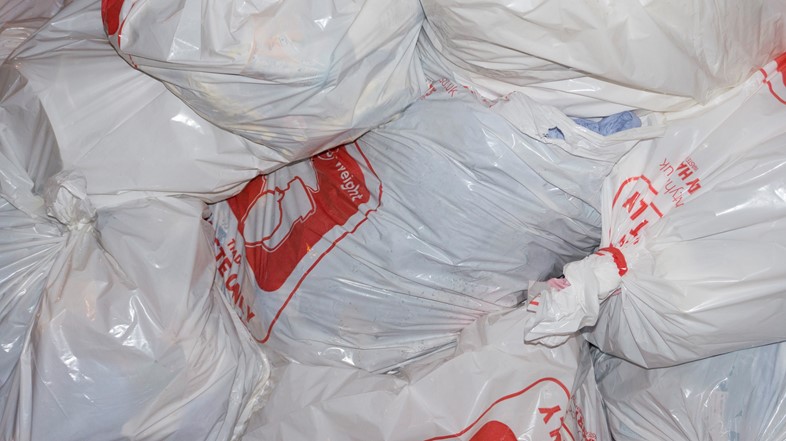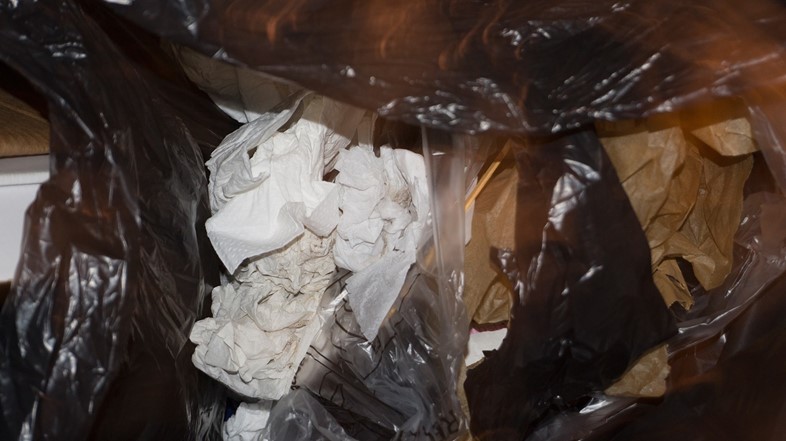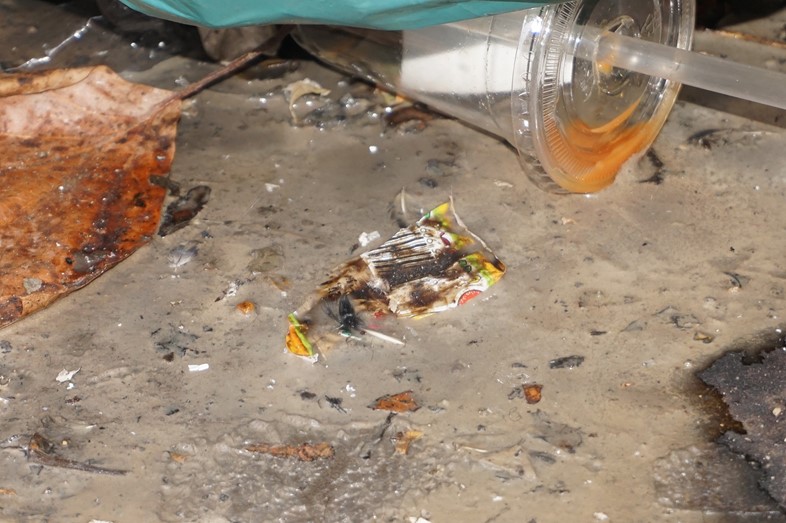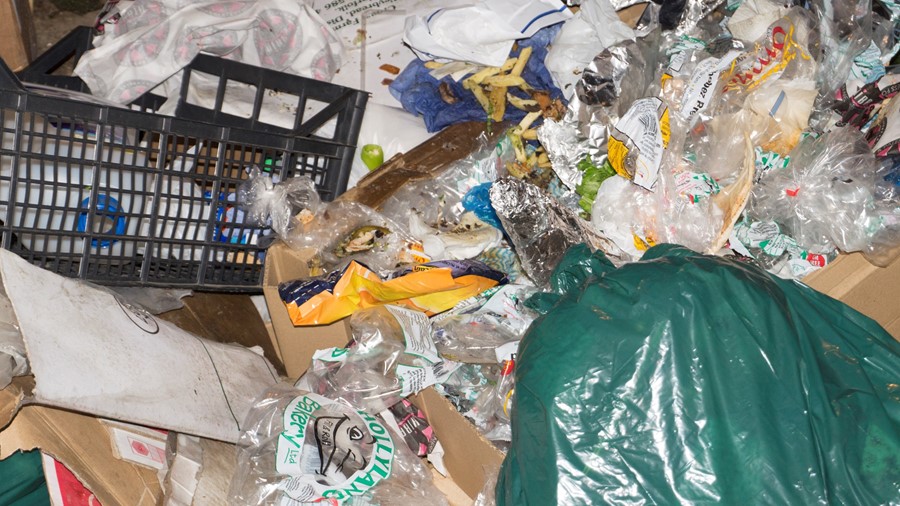A powerful new book of poems and short stories by model and artist Wilson Oryema asks us to rethink our cycles of desire
When Wilson Oryema, the artist, activist, model and muse to Grace Wales Bonner started taking photographs of bags of rubbish left on the street, it was the genesis for a larger exploration of the ways in which we want and consume. WAIT, his first book of poems, aphorisms and short stories, considers consumerism in all its forms – from physical objects to ideas and technology.
As a model, Oryema partakes in the creation of beautiful imagery designed to whet the appetite of consumers; he was streetcast in Calvin Klein’s A/W18 campaign alongside Frank Ocean, Kate Moss and Zoë Kravitz. But he’s also challenging us – both as individuals and industries (including the fashion world) to rethink what it means to constantly long for stuff.
Nonetheless, he’s quick to point out that this isn’t about chastising anyone for their (inevitable) habits: “This isn’t about speaking down on consuming,” Oryema explains, “I think consuming is very important. But it’s about careful consumption; enjoying the things you have, and being careful in how you approach or consume them.”
He’s previously held exhibitions of his photographic work at Doomed Gallery in Dalston, London, but this is the first time Oryema’s created a tangible object – a neat chalk-coloured paperback at eight inches tall – with which to start conversations. His ambitions are far-reaching: “Because of its size it can fit in pockets, or sit in classrooms.” We chatted with Wilson Oryema about longing, questioning and changing the world with small actions.

On the act of consuming…
“I’d been looking at how people leave out their trash and came to question whether the relationship we have with objects is healthy, or whether we’re over-consuming to our detriment. Obviously it’s important to think about how this affects the environment, but we also consume ideologies without questioning them, like advertising, and they can subconsciously affect our behaviour. With WAIT, I wanted to cover a broad spectrum of different ways of consuming.”
On tensions with the fashion industry...
“If we look at any industry – it could be fashion, food or technology – or place where items are mass-produced, there are issues that need to be improved. So I wouldn’t single out the fashion industry. Sometimes the best way to understand a place is to be inside it, understand the processes allowing it to work, and ask, how can I have an impact and create a positive change?”
On powering through...
“I think as long as I’m alive, I can still make a change. But when you think of a problem as a whole, it can really create fear and incapacitate you. Instead you can ask ‘What’s the thing I can do today?’ and break things down into manageable steps – maybe that’s writing a book, or giving talks, or collaborating with someone. There’s a particular poem in this book – “Improvement usually comes step by step / Not necessarily in large spurts” – and I’ve had to really internalise that lesson myself. It’s taken quite some time, but it’s about thinking globally, acting locally. It’s in everyone’s doing to bring about change, bit by bit.”

On changing habits…
“As part of the book’s research I ended up reading about beached whales with stomachs full of plastic bags. That really challenged me to look at my own personal habits; WAIT has definitely changed my relationship with plastic, and how often I buy water bottles or single-use items. I’m also upcycling as well as recycling, so actually reusing the items in various ways.”
On finding creative inspiration anywhere...
“I don’t look at art as separate from anything else – I like to reach into other spaces. I like Elon Musk for his resilience and approach to problems. What he’s done has helped me to realise what you can achieve with your time. I feel like I have a lot more I can do with my mine, for sure. Anything by Harley Weir is amazing, and filmmaker Sean Vegezzi’s recent film DMYCC, as well as his exhibition at Roaming Projects in Hackney, London really had an impact on me. Just seeing work like that expands the realms of possibility for everyone else.”
On carving out time…
“In order to get things done we really have to make priorities. I’ve never done anything like this before, so to make WAIT happen, I took a step back from everything, from modelling to seeing friends, to focus on making it the best it could be. Of course it’s good to socialise, but sometimes if you overdo it it’s to the detriment of other aspects in your life.
“I actually expected it to be a lot harder, but it was a pretty organic creation process. I didn’t want to over-curate it, I allowed life to happen, and reacted what happened around me, whether it was a conversation or something on the street.”

WAIT by Wilson Oryema is out now.
